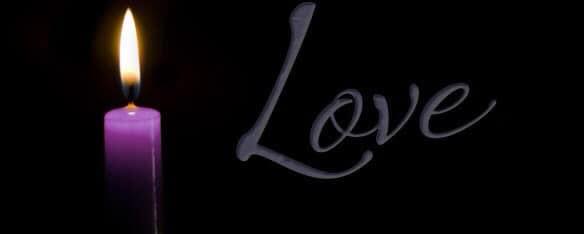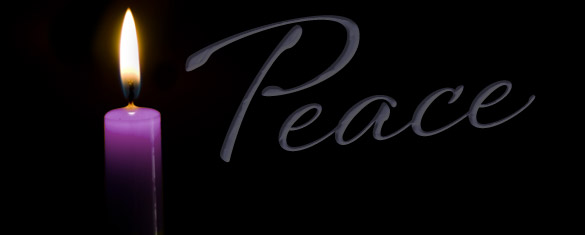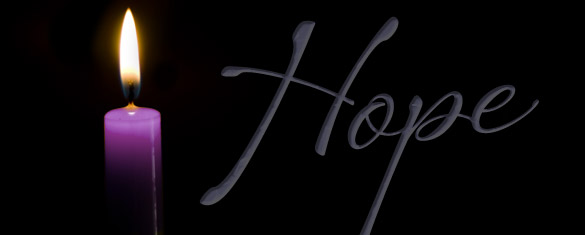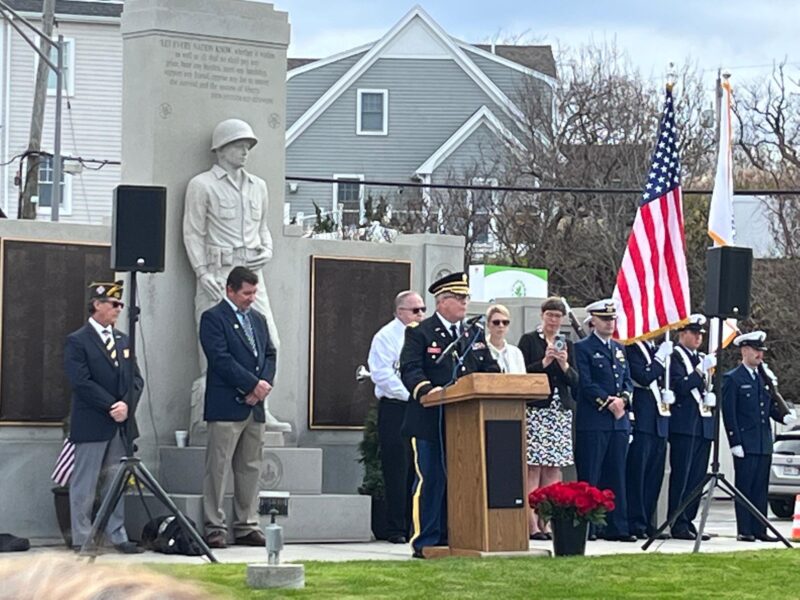Isaiah 11:1-10
Several years ago, there was a fire in the Great Smokey Mountains in Tennessee, and much of the area was burnt. When something like this happens, we often think of trees and shrubs, but what of animal life? The Smokies are filled with all sorts of animal life that live off the land and require what is there for their sustenance. If it is gone, they have to seek it someplace else.
Several months after the fire, my family held a reunion in the Smokies. We have been doing this for several years, and we rotate around the country so we all have a chance to attend. The evidence of the fire was still present, but the scars had started to heal.
One night, Nicky and I walked up from our rented house to the hotel where several other family members were staying. We had heard that there were bears in the area, but we had not seen any. You see, the bears had come down off the mountain in search of food, and they figured if humans were around, there must be garbage.
While sitting on the patio at the hotel, some bears appeared. It looked like a mother and her cubs; they were rather large but cuddly from a safe distance. We watched in amazement as they moved from one trash can to the next in search of food. Finally, the hotel manager emerged and banged on some pots, and the bears meandered back into the woods.
As we were leaving, someone said that the bears had returned. My instinct was to keep walking in the direction we were heading because I did not want to become their next meal. My wife, on the other hand, had a different idea. So, being the good husband I am, I followed behind her at a safe distance, ensuring there was nothing between me and a path to safety.
We started back up the stairs from the road to the hotel parking lot and when we reached the top, there she was, momma bear in all of her frightening glory. I don’t think I had ever been as scared as I was at that moment or since then. But there was my wife, phone camera in hand, telling the bear to say cheese. I was like don’t say cheese; they might think we have cheese and want to come for a visit!
Anyway, as you can see, we survived to tell the story. The bears were not interested in us and went about their business, looking for food. So the story had a happy ending.
Today we heard some of the more famous lines from the Prophet Isaiah:
“The wolf shall live with the lamb, the leopard shall lie down with the kid, the calf and the lion and the fatling together, and a little child shall lead them. The cow and the bear shall graze, their young shall lie down together; and the lion shall eat straw like the ox. The nursing child shall play over the hole of the asp, and the weaned child shall put its hand on the adder’s den.”
In other words, peace shall be restored to the earth.
If we go back to Genesis and the creation story, we read that humanity and animals lived in peace and harmony. It literally was paradise. It all changed with the arrogance of humanity, and it continued to get worse. Fast forward millions of years, and here we are, fighting off bears at the trash can! Whatever upset the peace, we are still dealing with the effects today.
However, I wish to point out that this peace comes after what Isiah said last week about judgment and the purging of the bad folks. Before there can be peace, there has to be justice and mercy, for they go together and cannot be separated. Oh, sure, we can talk about healing divisions, and that we are a divided country, all of which is true, but until there is mercy and justice, there can be no peace.
One of the many titles of Jesus is Prince of Peace. As I have said on many occasions, Jesus came to show us the way. He chose to be born like us so we could relate to him. If he had come down out of a cloud with fire and whatnot, how would we be able to relate? Jesus was born to humble beginnings to a race in captivity. He grew like us; he fell down and scraped his knee. No doubt he fell in love and had his heart broken. He had stomach aches, back pain, toothaches, and all the rest. We know from scripture that he felt grief and anger as well as joy and happiness. Jesus came to say look, I offer you a different way, a better way than the way you are headed, and that involves peace.
In a couple of weeks, the theme of Advent is love, and we will talk about love as I believe love is the only thing that matters as it is central to the message of the Gospel. But before we can get there, we need peace.
We often lament that we are divided as a nation, and, as I have mentioned before, I don’t think that is necessarily bad. I think we agree on much more than we let on, but we are so busy yelling and screaming that we are not listening, really listening.
However, there are some things I cannot and will not compromise on or listen to. In the last few years, and even more in the previous few weeks, we have seen a rise in antisemitism, and that just cannot stand. I want to be clear; there is no compromise with people who think Jews, or anyone for that matter, is less than and should be treated differently than anyone else. Any supremacy, whether white or national, is a sin, a scourge on humanity that must be whipped away forever!
Let me make one more point clear; there can be no compromise, none with anyone who wishes to take away or deny fundamental human rights to another based on skin color, economic circumstances, legal status, who they love, or any of the other ways we want to separate people. The people who wish to do that do not want to bring people together; they only want to force them apart.
Isiah is prophesying a time when order will be restored to earth at the most basic level. But where does it all start? It has to start somewhere.
I know it is a somewhat sappy song, and for a time, it was overdone, but there is some truth to the lyrics of Let there be peace on earth. The truth is peace has to begin inside each of us. We cannot fight for peace and justice if we do not practice peace and justice in our own lives. Likewise, we cannot find the middle ground if we despise those on the other side. Sure, we can disagree with their positions, but we must remember that, just like us, they are created in God’s image.
In my work at the Treatment Center, I talk a lot about how much of the spiritual journey is about changing the way we think about things. We need to rewire our minds to other possibilities. This past week we focused on finding our authentic selves to be able to answer the question, who are we at our core? To find that, we need to be able to silence the external and internal voices that want to pigeonhole us and label us.
But we also need to remove malice from our hearts.
When we remove malice from our hearts, we make room for grace and can offer grace. The example used was being happy for someone who excels in their job or gets that promotion that you wanted. So if you see someone getting ahead to excelling, be happy for that person and let them know. Congratulate them for their accomplishment, and by doing so, we remove the malice, and we have extended grace, and the world just became a bit more peaceful. I know it might sound stupid, but it works.
The world that Isiah speaks about does not come about by magic but rather through a lot of hard work and pain. God is not going to snap God’s fingers and make it so; that is not how it works. Remember, God sent Jesus, not an army armed with weapons of mass destruction. God sent Jesus, not a politician armed with hate in their voice. God sent Jesus, the prince of peace, to show us another way, and that way begins inside each of us.
As a child of the 70s, I grew up with great religious movies like Jesus Christ Superstar, Godspell, and my favorite, Brother Sun and Sister Moon. If you have never seen it, you owe it to yourself to take the time and watch. It is a modern telling or retelling of the story of St. Francis. I think we sometimes forget that Francis was a reformer. Strip away all statues with animals and whatnot, and we see that God’s call to Francis was to rebuild his Church. Of course, he thought it was the physical church outside his village, but it was to rebuild a sense of church through humility and peace.
Francis came from a wealthy family and had everything he could have wanted. But when God called him, he quite literally stood in the town square and stripped away all of his earthly possessions, and humbled himself before God. Francis began to rebuild the physical church, and at the same time, he rebuilt the church within himself.
As you are aware, there is a prayer that is attributed to Frances about peace, and it is a very personal prayer. Francis beings, make me an instrument of your peace. In other words, let peace flow through me to the world. Francis goes on;
Where there is hatred, let me sow love.
Where there is injury, pardon,
Where there is doubt, faith.
Where there is despair, hope.
Where there is darkness, light.
Where there is sadness, joy.
O DIVINE MASTER, grant that I may not so much seek to be consoled as to console:
To be understood as to understand;
To be loved as to love.
For it is in giving that we receive –
It is in pardoning that we are pardoned.
Peace begins inside each of us, and we all have the potential to make this world a better place. Let the prayer of Francis be our prayer this day and every day, Lord, make me an instrument of your peace.
Amen.









